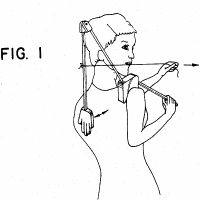Chapter 1 of “The God Delusion”
By FRATER BOVIOUS

Presumption is not demonstration.
(CARROLLTON – TX, Cradle of Civilization) This past Thursday, January 15, the members of the obscure book club Men on Books met to discuss the first two chapters of Dawkins’s book, The God Delusion. (The preface is commented on here.)
Fortunately we had whiskey and cigars on hand.
It is difficult to express the disappointment felt by the members in their reading of these first two chapters. (Chapter Two will be discussed in a follow-up post.) We assumed, based on the press surrounding this book, that we would be reading a very well articulated argument against the belief in God. We were left wondering if we were reading the same book the reviewers had so lavishly praised.
We now look forward to the next two chapters in hopes of finding the well articulated arguments that failed to make an appearance in the first two chapters.
Meanwhile, the first chapter of the book is titled, A Deeply Religious Non-Believer. He provides a quote from Einstein using that terminology which I am assuming is the source of the title. By this title, and the content of the the chapter, I take this to mean that Dawkins is passionate about his Atheism, and I at least got the impression that his main reason for his deeply religious non-belief is his deeply religious belief in evolution. He acknowledges at least being religious regarding Nature, in terms of his defined Einsteinian religion, but rightly concludes that calling himself religious would be misleading (p 40 – all page references are to the paperback edition).
He spends much of this chapter explaining the different ideas to which the word “God” is attached, and at least he did manage to make one thing clear. By “God” he is very specifically referring to “the supernatural” and not to any concept of a god that is essentially explainable in terms of Nature. So, he goes to great lengths to make sure the reader understands that when Einstein or Hawking use the word “God” they aren’t referring to anything supernatural, they are instead referring to Nature, and all the natural workings thereof. Well and good. Defining one’s terms is always a good starting point.
But in this process we also learn that all the smart, honest people believe in science, evolution, and nature, and that the religious mind is weak (p 38).
In the chapter he also includes a quote from Carl Sagan which he ascribes to Sagan’s The Pale Blue Dot, and in which Sagan asks a fundamentally wrong question, and then provides a silly response supposedly representative of his target:
How is it that hardly any major religion has looked at science and concluded, ‘This is better than we thought! The Universe is much bigger than our prophets said, grander, more subtle, more elegant’? Instead they say, ‘No, no, no! My god is a little god, and I want him to stay that way.’ (pp 32-33)
What is fundamentally wrong with the question? It is dishonest and is a text book straw man argument. In any intellectually honest scientific inquiry the first questions should be, “What do I know is true?”and “Are all the assumptions I bring to this inquiry valid?”
A non-agendized version of this question would be, “Is it the case that most of the major religions of the world have a belief in a small god and that they want to keep their small god? Is it true that the major religions of the world are simply opposed to science and the scientific method?” An intellectually honest attempt to give a representative answer would involve researching their writings and talking to their authorized representatives to at least have a passing familiarity with their actual position. However, we have already learned that Dawkins feels no need to do so as mentioned in a previous post here.
In order to introduce some semblance of a scientific approach to Sagan’s silly question and answer I would have to ask Dawkins, “Is it true that the major religions of the world reject science? That they don’t find scientific knowledge useful? That the scientific view of the Universe is much more majestic and subtle than their prophets said? That they all simply concluded, ‘I like my god small and manageable?” To which Dawkins should have to respond, “I don’t know, since I don’t read Pastafarianism.” Except I rather expect he would simply assert, “Yes, that’s all self-evident.”
The only religion I know anything about is Catholicism, so I will only speak to what I know. Is Catholicism one of these major religions that believes “My god is a little god, and I want him to stay that way”? That rejects science and the scientific method? I am just going to state “No, in my studies no one has ever put forth any such idea, in fact, quite the opposite. In fact, the Catholic Church celebrates advance of human understanding, and recognizes scientific inquiry as a critical human activity.” What he would have to say about that I will discuss in the post on Chapter 2. I will give you a hint though. It won’t involve him demonstrating a damn thing.
The presumptive arrogance of the above quote from Sagan, however, is most certainly not an argument for or against anything. It is simply a dismissal, without warrant, of “major religions” as being small-minded. Without warrant. And it says nothing about the supernatural, which is Dawkins’ stated target. So why does Dawkins include it? I don’t know. I do know he believes Scientists are smart and Religionists have weak minds. I can only presume that the intent of this chapter is to plant the idea that religious belief is idiotic so that he doesn’t have to actually address religious belief in the rest of the book except to wink and say, “Typical religious ‘thought'”.
I would like to close this article by looking at Dawkins’ concerns over the privileging of religion. There is an example in the chapter, in support of the idea that religion gets a free pass in the US, regarding a 12 year old boy (James Nixon) wearing a T-Shirt that was opposed to Homosexuality, Islam, and Abortion. Dawkins spends time showing that the kid won the right to wear the shirt through the courts. Dawkins objected to the reason he won the right:
The parents might have had a conscionable case if they had based it [their lawsuit] on the First Amendment’s guarantee of freedom of speech. But they didn’t. Instead, the Nixon’s lawyers appealed to the constitutional right to freedom of religion. (p 45)
Just for proper reference, here is the text of the First Amendment to the Constitution:
Congress shall make no law respecting an establishment of religion, or prohibiting the free exercise thereof; or abridging the freedom of speech, or of the press; or the right of the people peaceably to assemble, and to petition the Government for a redress of grievances.
You will note that Dawkins’ complaint, simplified, is that Nixon’s lawyers had the audacity to use the First Amendment, instead of the more “conscionable” use of the First Amendment. He also caricatures this as a case of legalized discrimination against homosexuals disguised as a case in defense of freedom of religion. Note, he is equating the wearing of a t-shirt (now solely focused on the “homosexuality is a sin” part) as “discrimination”, a legal and technical term under Constitutional law and for which the wearing of a t-shirt by a 12 year old simply does not apply. Should I be concerned that Dawkins, who, after all, is a noted biologist and well-respected in his field, misapplies a technical term in the field of Constitutional law, when he has not trained as a lawyer, nor is he an expert in the nuances of Constitutional law? I don’t know. Should I care when he misconstrues and misapplies terms and concepts and draws erroneous conclusions in other areas in which he has no expertise?
You will also note that the First Amendment specifically calls out Religion under its protection, so Dawkins may be upset that Religion has preferential treatment in the USA, but it does so by law, and by the way, none of this addresses the supernatural. Nevertheless, there is an irony I want to point out.
Immediately after this example of the privileging of religion, Dawkins gives another (and now timely) example involving the printing of cartoons of the Prophet in Denmark circa 2006 (p 46). He goes to great lengths to describe how the cartoons were used by some Muslims to deliberately foment unrest and cause property damage and murder. He is rightly upset about this, but he has a special anger for those folks who “…expressed ‘respect’ and ‘sympathy’ for the deep ‘offence’ and ‘hurt’ that Muslims had ‘suffered…”’ (p 49). Dawkins does say that he is opposed to offending or hurting people just for the sake of it. But, he further says that “All politicians must get used to disrespectful cartoons of their faces, and nobody riots in their defense.” This is at least a tacit defense of those who printed the cartoons of Mohammed.
Let’s reverse these two examples of ‘privilege.’ Suppose the 12 year old wore a t-shirt expressing anti-Muslim sentiment (which in fact he did.) Suppose the Danish paper published cartoons slandering Gays. Would Dawkins then be supporting the kid’s right to wear the t-shirt? Would he tell gay folks to “get used to it”?
If I were him, I would reply by saying gay people are real and God is not. I don’t think he would say gay people are real and religion is not, and maybe he wouldn’t say since all the religious are weak-minded, they shouldn’t have any rights. But I do wonder.
What the above last example suggests to me is that Dawkins conflates religion and supernatural. I say that because, so far, all his discussion has been about religion and the things people do in the name of their religion. But, this is not an argument against the supernatural. It is a comment on human beings and the things they do. And he apparently feels that if not for religion, the world would be a sane and rational place and everyone would just get along. That’s an open question. But simply convincing everyone that God is not real won’t make people behave. I am perhaps pessimistic when I say that it is more likely that people will find some other way to justify their actions. In fact, in a secular world, this is already happening. People are blaming their environment, their social status, their education, their historical ties to slavery, their lack of privilege, etc. for all their failings. This is hardly the sole province of religion.
Dawkins promises to dispense with proofs of God in Chapter 3, and then explain why there almost certainly is no God in Chapter 4 and the book club will discuss these chapters on January 29th.
(Next: The God Hypothesis.)







